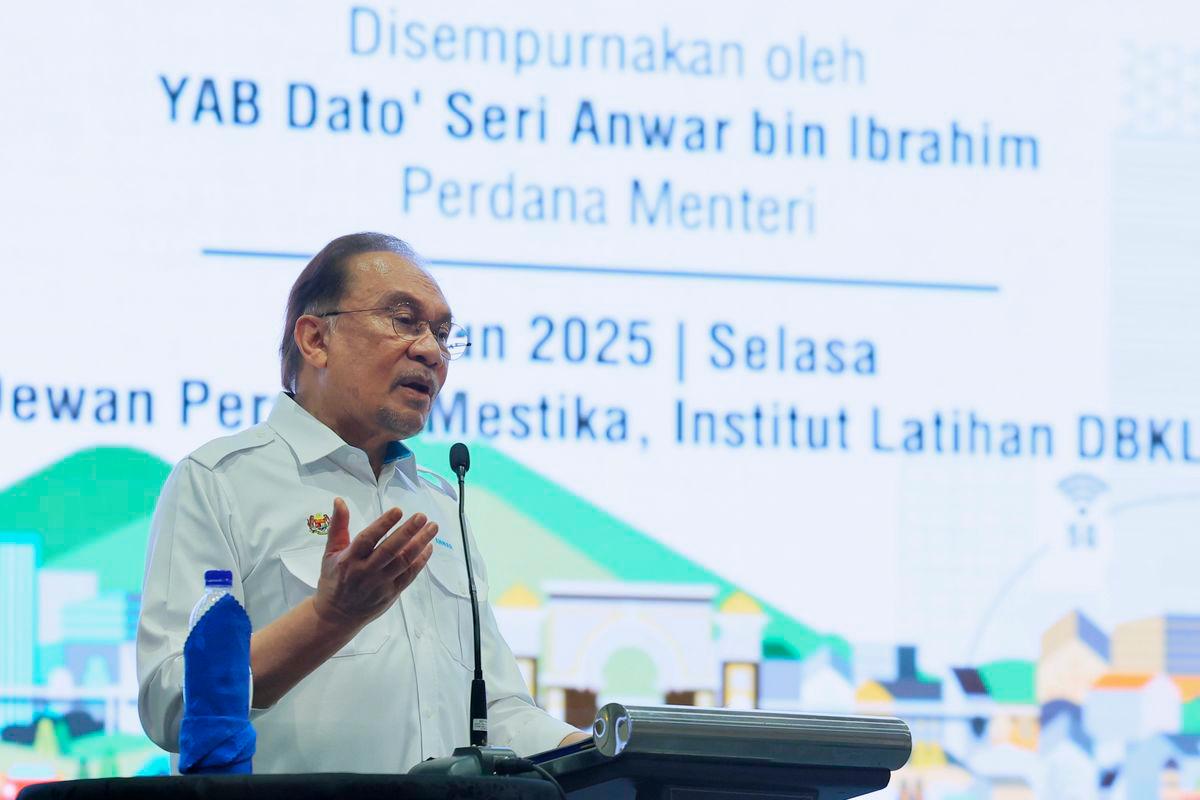KUALA LUMPUR: Prime Minister Datuk Seri Anwar Ibrahim today launched the Kuala Lumpur Local Plan 2040 (KLLP2040), calling it the most comprehensive urban strategy ever introduced by Kuala Lumpur City Hall (DBKL). The plan prioritises inclusivity, equity, and technological advancement to reshape the capital’s development approach.
Anwar highlighted that KLLP2040 is not just about physical restructuring but represents a fundamental shift in philosophy. “We are transforming Kuala Lumpur into a more humane and equitable city for all communities,“ he said. The plan incorporates digital innovation and artificial intelligence (AI), particularly in public housing projects, to modernise urban living.
The Prime Minister acknowledged the challenges of working within existing infrastructure. “We are not building a new city like Putrajaya. We are operating within an old framework that may not fully meet our aspirations,“ he said. The plan aims to balance heritage preservation with progressive upgrades, ensuring sustainable growth.
Anwar stressed that the challenge of urban development today goes beyond construction, as it also requires fixing what already exists, including rectifying chaotic planning systems, ad-hoc housing approvals, and lax governance practices.
He acknowledged that the plan had faced significant delays, primarily due to the COVID-19 pandemic, but under the MADANI government, a comprehensive review and recalibration were undertaken to ensure Kuala Lumpur’s growth is both sustainable and inclusive.
He said that the launch of the local plan had taken some time because it involved engaging various stakeholders, including local communities and business operators, to ensure all voices were heard.
Crucially, Anwar highlighted that future urban development must prioritise the needs of the B40 and M40 groups who have been receiving only the “leftovers” of progress, while the benefits of development are concentrated around the elite and wealthy.
He admitted that there has been resistance from elite groups over the redesigned public housing projects, but firmly stated that the government will not compromise on its principles and will continue to champion those who have long been marginalised.
“Too often, urban development treats the needs of ordinary people as an afterthought, an isolated idea. Facilities are concentrated in areas serving those already living in comfort. Not wrong, but imbalanced.
“I always say that development must be humane, meaning that it must take into account the needs of hawker stalls, warungs and small restaurants enjoyed and frequented by the majority of 80 per cent of the population,” he said.
As such, Anwar stressed that urban growth must encompass a sustainable ecosystem that integrates education, healthcare, childcare centres, and public transportation.
He cited the example of vertical schools — compact, multi-storey educational institutions built with a strong focus on safety, efficient design, and proximity to public transport and essential services.
PTKL2040, he said, translates this long-term vision into action, reinforcing Kuala Lumpur’s planning framework in line with the broader sustainability agenda and the guiding principle of “A City for All.”
The plan will serve as a key reference for DBKL in assessing development proposals, executing approval processes, and charting the city’s future growth strategies.
The launch of the KLLP2040 at the DBKL Training Institute in Bandar Tun Razak was attended by the Prime Minister’s wife who is also Member of Parliament for Bandar Tun Razak Datuk Seri Dr Wan Azizah Wan Ismail.
Also present were Minister in the Prime Minister’s Department (Federal Territories) Datuk Seri Dr Zaliha Mustafa, Communications Minister Datuk Fahmi Fadzil, and Housing and Local Government Minister Nga Kor Ming.
Chief Secretary to the Government Tan Sri Shamsul Azri Abu Bakar and Mayor Datuk Seri Maimunah Mohd Sharif were in attendance.









